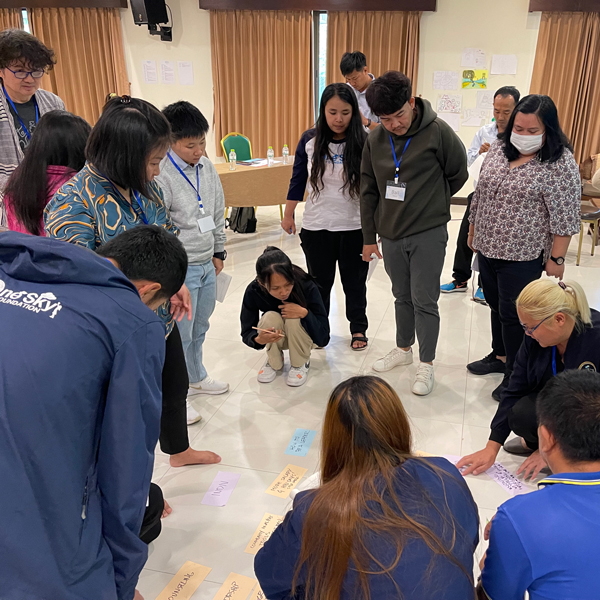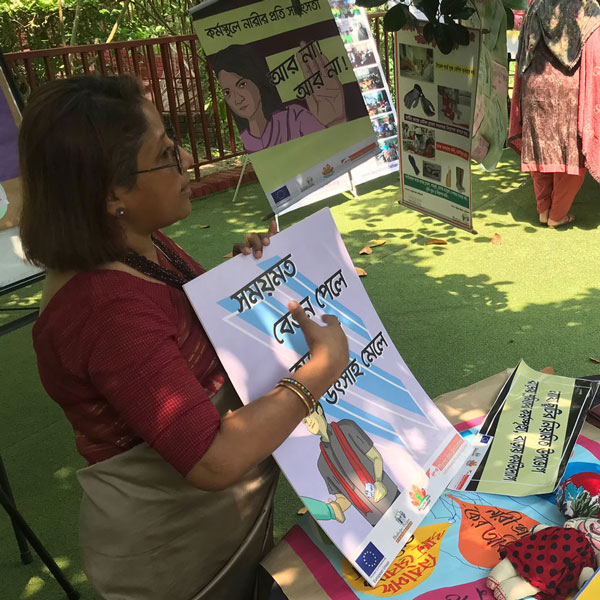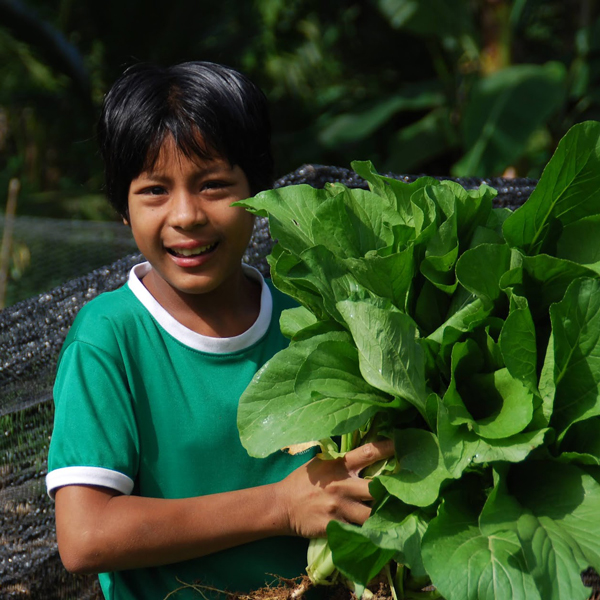As the number of boys and men affected by human trafficking continues to increase, their inclusion in anti-trafficking discussions and interventions is more important than ever. In Thailand, GFC partner Urban Light Foundation has taken this to heart in its fight against the sexual exploitation and trafficking of men and boys.
Urban Light Foundation is part of GFC’s Fostering Youth Leadership in Thailand initiative, which is supported by the Algot Enevoldsen Foundation. The initiative supports a network of grassroots organizations in Thailand that work directly with children and youth and that are interested in championing youth leadership.
While many efforts to combat human trafficking focus on women and girls, one organization in Thailand centers its anti-trafficking efforts on men and boys. Founded in 2015, Urban Light Foundation (UL) works to protect men and boys in Chiang Mai, Thailand, from trafficking and exploitation by meeting their basic needs and empowering them through education, training, and counseling to give them the freedom to choose a life beyond exploitation.
UL’s programs and activities center on approaches led by youth and by those who have been trafficked or exploited. The foundation provides healthcare services, occupational skills training, workshops for protection and prevention, life skills training, housing, education, outreach, and legal support.

UL focuses its interventions on men and boys due to the lack of gender-sensitive care and services in anti-trafficking work for this population. Recurring challenges include the identification of trafficked men and boys, barriers to accessing support, a need for education and training, and a need for more research and evidence-based interventions. Although UL’s primary target group is men and boys, the foundation also works with families, dependents, and legal guardians to provide services and support. UL recognizes the importance of including the families and dependents of the men and boys in its programs.
UL also advocates for including other community members and extends services to “chosen” or “found” families. Many boys and men who have been trafficked do not have a safe, loving biological family to fall back on, and the foundation believes that working with the groups that they feel a kinship toward is a way of respecting their experience, and addressing the reality that chosen families, although not related by blood, have the power to be a positive or negative influence in their lives.
Over the years, UL has published several research reports to raise awareness of the lack of interventions and care for men and boys. The latest report, called “Tell Them What Happened to Me: An Exploration of Online and Offline Sexual Exploitation of Males and SOGIE-Diverse Young People in Northern Thailand,” was published in 2022 in collaboration with the World Childhood Foundation. UL’s research has shown that boys, men, and members of the LGBTQIA+ population impacted by sexual exploitation want their voices to be heard.
In 2023, UL presented this research at the ECPAT International Global Boys Summit and the Asia Region Anti-Trafficking Conference. The long-overlooked issue of trafficking and exploitation of men and boys was highlighted during the presentation. UL’s research sparked conversations on how to work with men and boys as well as how to include them in anti-trafficking interventions and discussions.

Many anti-trafficking organizations focus their programs on girls and women, and Maia Mounsher, UL’s Director of Strategy and Grants Management, suggested an easy way for these organizations to start including men and boys in their interventions: ask the women and girls that they already know: “How is your brother?” For organizations already serving some of the most at-risk women and girls in Thailand, for example, this simple question can be a way to learn about men and boys who have grown up in the exact same circumstances and are likely to also be at greater risk of being trafficked.
UL’s research reveals new trends and important findings. Internet usage for child sexual exploitation and the sex trade has increased and become more widespread. The most common online activity is sending explicit photos or videos to perpetrators. Gender norms and expectations also present unique vulnerabilities for men and boys. Most social services and support are provided to cisgender women, and this can lead to feelings of stigma and exclusion for other genders who are victims of sexual exploitation. An increase in gender-sensitive care and services is needed to meet the needs of people of all genders.
In addition, the research shows that providing employment opportunities, housing, and education can reduce people’s vulnerability and prevent sexual exploitation. Homelessness, for instance, increases vulnerability to sexual exploitation.
In its latest report, UL also provides recommendations for service providers, governments, policymakers, researchers, and funding partners. One of the recommendations for funding partners is to provide flexible funding. Flexible, multi-year funding allows grassroots partners to adapt to changing circumstances and allows time for trauma recovery. Moreover, multi-year commitments from funders and flexible funding for housing, education, and alternative employment can create sustainable change and allow those who have experienced trafficking and at-risk groups to heal and grow. GFC is committed to flexible funding, which allows our partners to determine the best use of their resources and gives them greater ability to innovate and adapt in response to challenges facing children and youth.
Header photo: A painting activity offered by Urban Light. © Urban Light



